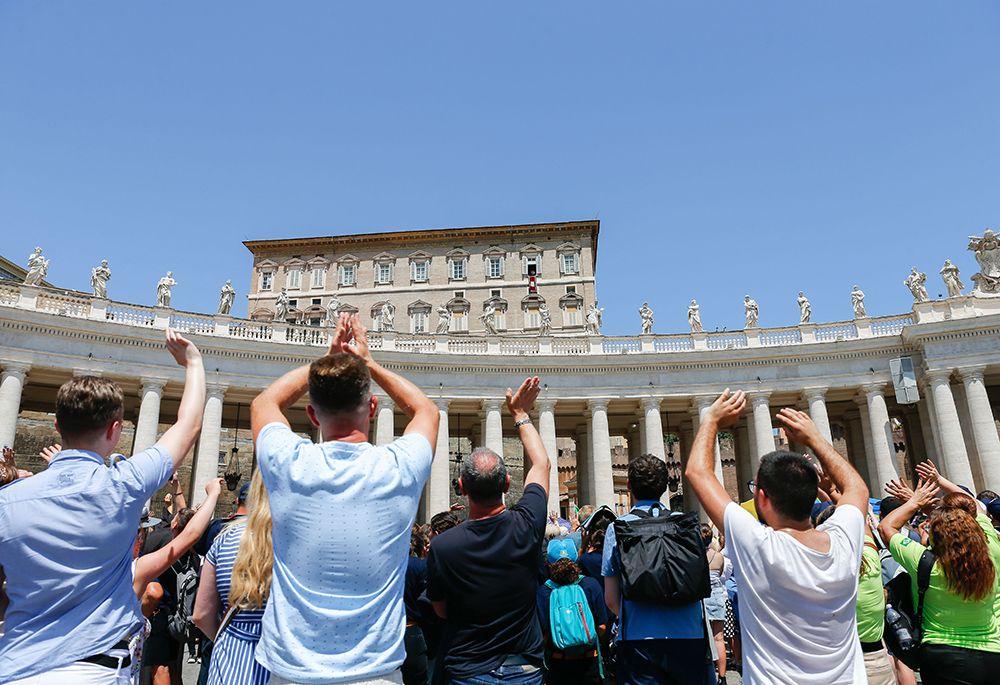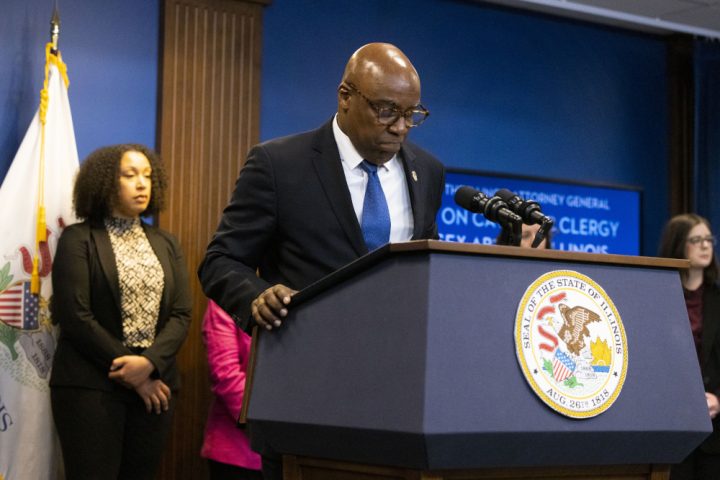
Jesuit Fr. John Foley, one of the St. Louis Jesuits of liturgical music fame, composed « Who Has Known » based on today’s second reading. This song contemplates God’s inscrutable judgments and unsearchable ways via the mystery of the Incarnation. The reverent words and mellow music conspire to help us approach the word of God, the Eucharist and our brothers and sisters with awe, as a mystery of revelation.
In today’s first reading, Isaiah prophesies that God will depose an unworthy leader. When he depicts a different, worthy leader, he describes someone as committed as a parent to provide for the total well-being of the people. Such loving dedication is what gives this leader the « power of the keys, » the authority/ability to help the people flourish by providing opportunities and prohibiting harmful behaviors. The exercise of this nurturing guidance gives stability to everyone blessed by the influence of such servant-leaders. Isaiah gives us the sense that leaders chosen by God inspire reverence and show it to others.
These ideas provide the background music to today’s Gospel — an incident we might see as another rendition of the call of Peter.
This scene opens with the most important, intimate, and serious question one person can ever ask another: « Who do you say that I am? » The disciples couldn’t dodge the question with an indirect, « They say … » So, Peter took the risk and blurted out what they had been thinking and hoping: « You are the Christ. »
That was no simple statement. Although he surely didn’t understand all its ramifications, calling Jesus « the Christ » entailed a commitment as radical as any vow. It’s as strong a statement as, « Yes, I will marry you, » or « I am consecrating my whole life to this. » Peter’s confession that Jesus was God’s Son, implied a promise to follow, to listen, to obey Jesus as one would obey God alone. His statement indicated that absolutely nothing in the world could take precedence over his response to what Jesus would ask of him.
Of course, Peter did not fulfill his promise immediately or flawlessly. He continued to dispute Jesus’ predictions about suffering, he wanted to put limits on forgiveness, he bragged and argued with other disciples. Matthew and Mark probably summed up Peter’s discipleship with the sentence, « Peter followed at a distance » (Mark 14:54, Matthew 26:58). But the important point was not the distance, but the following. Peter took the risk over and over. He had committed himself by saying, « You are the Christ, » and he strove to live that commitment for the rest of his life.
Upon hearing him, Jesus responded, « How blessed you are, Peter! This is not something you could figure out on your own. » Peter did not figure it out alone and he could not live it out alone. His religious heritage, his relationship with Jesus, his prayer, the companionship of the other disciples — all these people and experiences were included in God’s revelation to him. All of them enabled him to keep growing into the commitment he had professed.
It seems that Jesus chose Peter, not for what he could accomplish or for his wisdom or strength, but for his capacity for metanoia, his willing ability to change and learn, to cultivate an ever-larger vision. Peter’s faith allowed him to grow into his commitment and that faith is the rock Jesus chose as the foundation of his church. Peter’s faith allowed him to weep for betraying Jesus: Knowing his need for conversion, he could be a worthy leader, the keeper of the keys for a frail church.
Jesus’ question was at least the second time Jesus called Peter and the disciples to their vocation. By professing that Jesus was the Christ, they pledged to follow him. They would not do it flawlessly, but they would continue on the way, faithful enough to get up and keep going after falling.
So much for Peter and company. What do we say when Christ asks, « Who do you say that I am? »
Every Sunday we profess the creed. Is it possible that its philosophical and historical language cushion us from the radicality of Peter’s simple, commitment-compelling statement? Do we ever feel implicated by what we are saying? Is there any statement in the creed that feels so risky that we think twice before saying it? What phrase could move us to awe?
All the components of today’s liturgy — from readings to the creed to the command, « Do this in memory of me » — conspire to shake us up. Today, we find ourselves called to answer Jesus’ question for ourselves. Happily, we don’t need to figure it out alone, nor live it alone. God’s revelation comes through community, word and sacrament. In that, we can believe, and that’s awesome.



